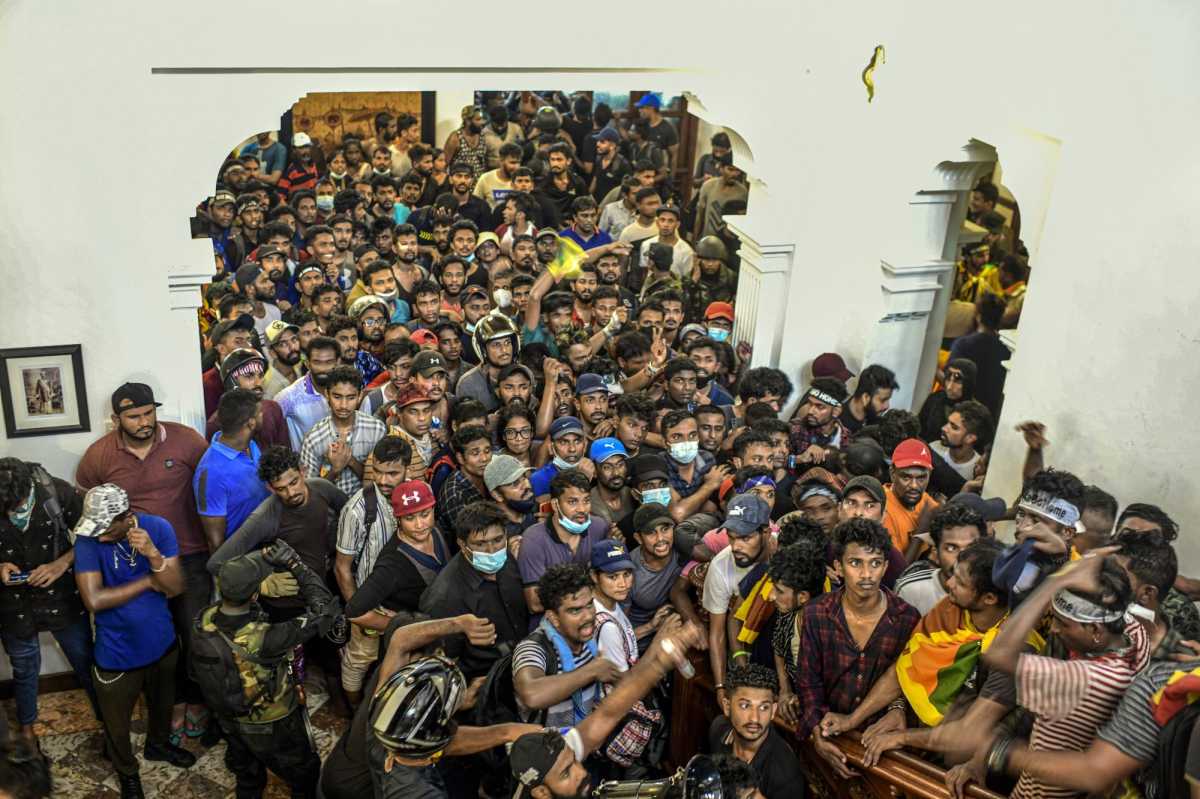World
Crisis in Sri Lanka: A Deep Dive Into Historical and Current Challenges

Amelia Cronin-Furman, a human rights expert and political scientist at University College London, recently discussed the perpetual crises in Sri Lanka during a panel at Harvard University. The event, titled ‘Crisis in Sri Lanka,’ was co-sponsored by the Lakshmi Mittal and Family South Asia Institute, Edmond & Lily Safra Center for Ethics, and Weatherhead Center for International Affairs.
The panel delved into the historical and current challenges facing Sri Lanka, a nation embroiled in ethnic conflicts and political turmoil. The conversation was initiated by Harvard graduate students with roots in the island nation, spurred by a previous event co-hosted by the Mittal Institute and a subsequent protest highlighting human rights abuses against the Tamil minority in Sri Lanka.
Sai Rajagopal was one of the vocal students involved in the protest, emphasizing the need for more context and justice in discussions about Sri Lanka. Responding to the student activism, the Mittal Institute facilitated a two-part series on the crisis in Sri Lanka, aiming to foster open dialogues about the complex issues plaguing the country.
Reflecting on the tumultuous history of Sri Lanka, Thamil Ananthavinayagan, a Ph.D. candidate at the University of London, highlighted the enduring divisions between the Sinhalese majority and the Tamil minority. He underscored the stark contrasts in how Sri Lankans observe Independence Day, with celebrations in Colombo starkly differing from protests in Tamil areas.
Further shedding light on Sri Lanka’s recent crisis, Maïa Rasaratnam, a senior lecturer at City University of London, discussed the country’s debt default, protests, and political resignations. She pointed to long-standing structural issues, including economically unproductive projects and demographic changes aimed at bolstering Sinhalese nationalism.
Despite the change in leadership, including the resignation of Prime Minister Wickremesinghe, experts remain cautious about Sri Lanka’s future. Cronin-Furman expressed skepticism about the prospects for systematic change in the near term, painting a grim picture of Sri Lanka’s ongoing challenges and uncertainties.
The ‘Crisis in Sri Lanka’ discussion series at Harvard serves as a model for engaging in difficult conversations, offering insights into the complexities of a nation grappling with deep-rooted historical and contemporary crises.












